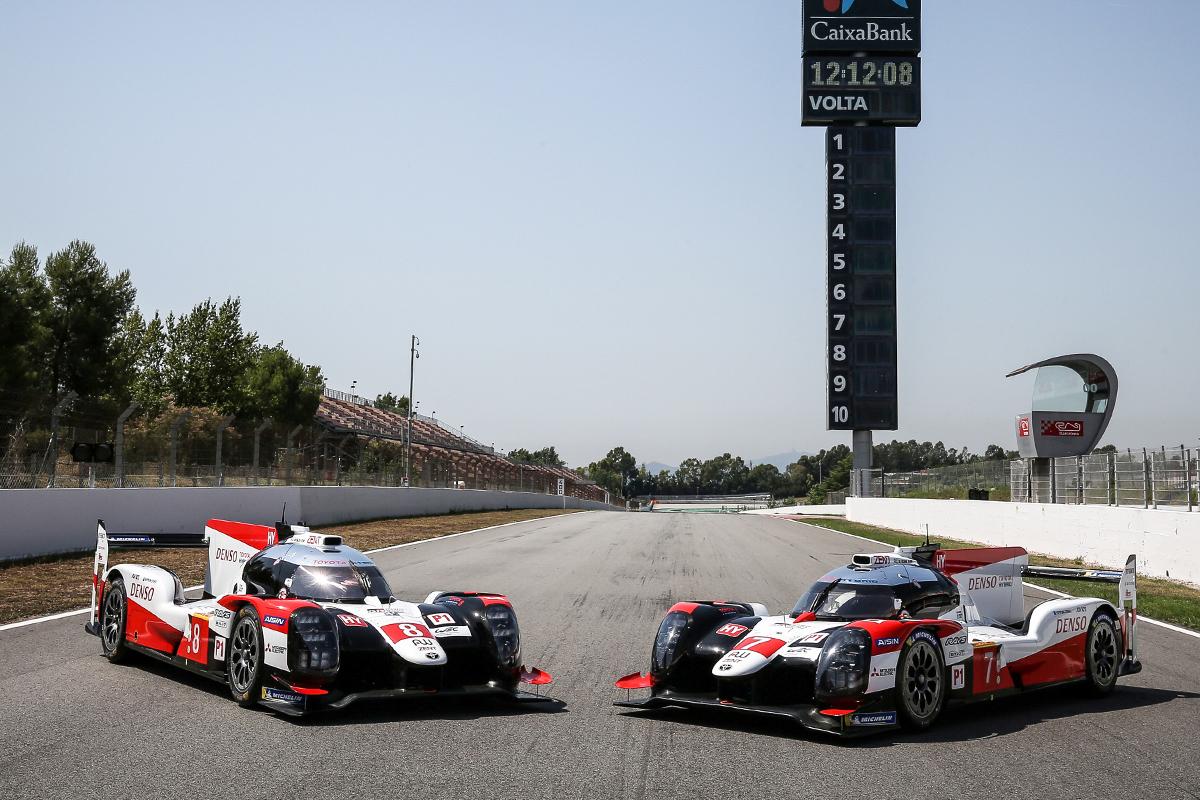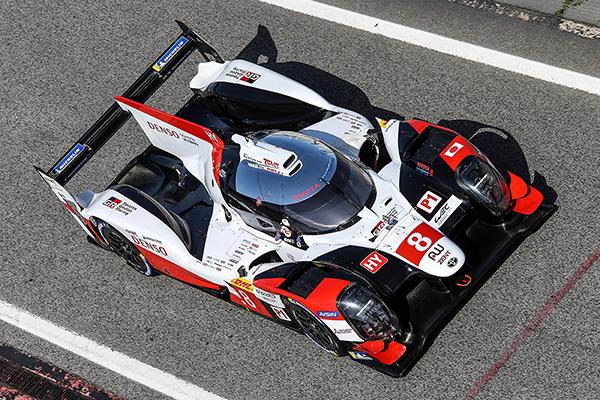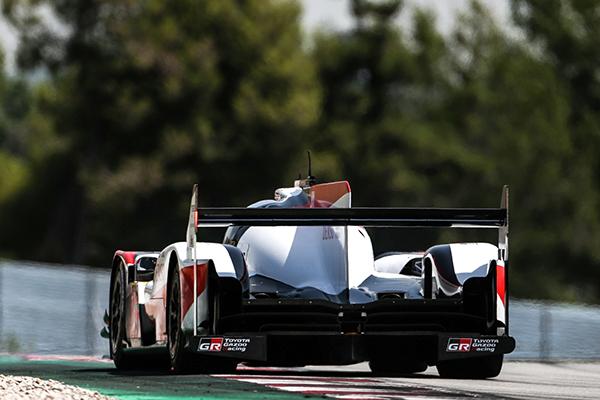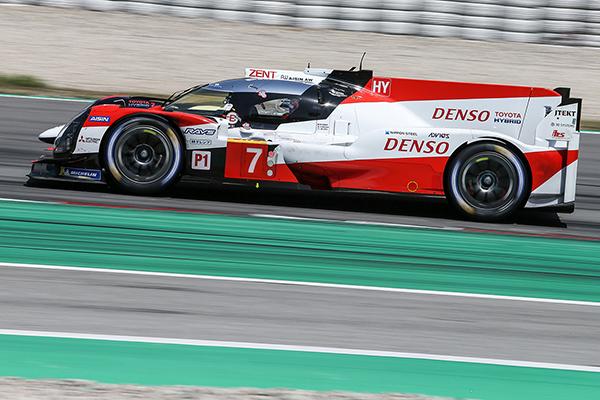INTRODUCING THE TS050 HYBRID.
IMPROVEMENT
TS050 HYBRID.
STRIVING FOR
A CHAMPIONSHIP.
The TS050 Hybrid, which won the 24 Hours of Le Mans races consecutively in 2018 and 2019, has undergone a high level of improvement in its power train, including material of high power lithium battery cells and electrolytic solution. Further improvements have been made in reliability and battery deterioration prevention in preparation for the 2019-2020 season, in order to make it possible to use the hybrid boost until the end of the race. While there are no major modifications to the engine, several improvements have been made to decrease friction.
With regards to aerodynamics, the shape of the front of the chassis has been revamped with a high nose and embedded side mirrors. This will reduce drag and improve downward force, and is expected to increase their competitiveness through improved aerodynamics.
Compared with last season's non-hybrid cars, the TS050 Hybrid must now comply with Equivalence of Technology (EoT), and the weight of the hybrid car has increased by 36kg in the eighth race, the 24 Hours of Le Mans, when compared to the first race. Instant fuel flow for the non-hybrids was raised by 43.75%. Through EoT, the difference in ability between the hybrids and the non-hybrids has decreased, and we may see more updates depending on what happens this season. Additionally, this season will see the implementation of the success handicap, which makes adjustments based on how many points one has accumulated by the previous race. All the while, the TS050 Hybrid has refined its chassis and finer components for further improvements in its capabilities and the reliability of all of its parts, contributing to Toyota's mission to make ever-better cars.
VEHICLE SPECS
| Type | LMP1-H (Le Mans Prototype - Hybrid) |
|---|---|
| Bodywork | Carbon fibre composite |
| Windscreen | Polycarbonate |
| Gearbox | Transversal with 6 gears, sequential |
| Gearbox casing | Aluminium |
| Drive shafts | Constant velocity tripod plunge-joint drive shafts |
| Clutch | Multidisc |
| Differential | Mechanical locking type |
| Suspension | Independent front and rear double wishbone, pushrod-system |
| Springs | Torsion bars |
| Anti roll bars | Front and rear |
| Steering | Hydraulically assisted |
| Brakes callipers | Dual circuit hydraulic braking system, Mono-block light-alloy brake callipers front and rear |
| Brake discs | Carbon ventilated front and rear |
| Wheels | RAYS Magnesium alloy |
| Front rims | 13 x 18 inch |
| Rear rims | 13 x 18 inch |
| Tyres | Michelin radial |
| Front tyres | 31/71-18 |
| Rear tyres | 31/71-18 |
| Length | 4650mm |
| Width | 1900mm |
| Height | 1050mm |
| Fuel capacity | 35.2 kg |
| Powertrain | TOYOTA HYBRID System - Racing (THS-R) |
| Engine | V6 DI(direct injection) twin-turbo |
| Engine capacity | 2400 cc |
| Power | 368kw / 500PS |
| Fuel | Petrol |
| Valves | 4 per cylinder |
| Hybrid power | 368kw / 500PS (front and rear combined) |
| Overall maximum power (engine and hybrid) | 735kw / 1000PS |
| Battery | High-powered lithium-ion battery |
| Front hybrid motor | AISIN AW |
| Rear hybrid motor | DENSO |





